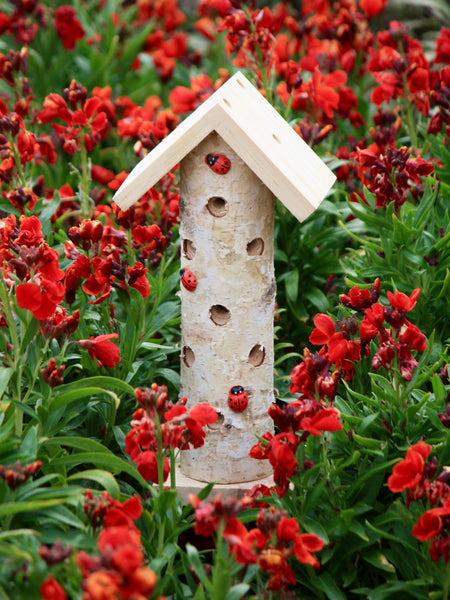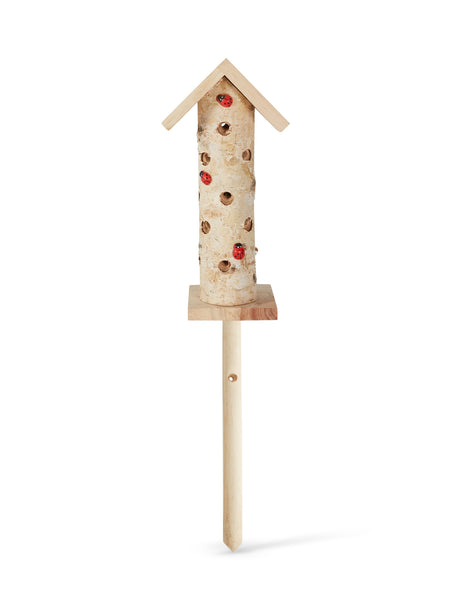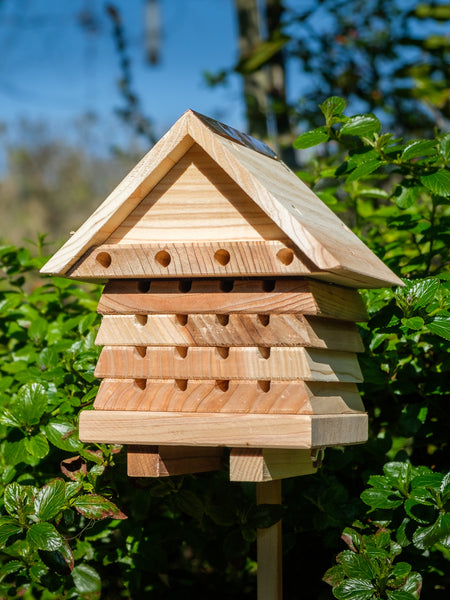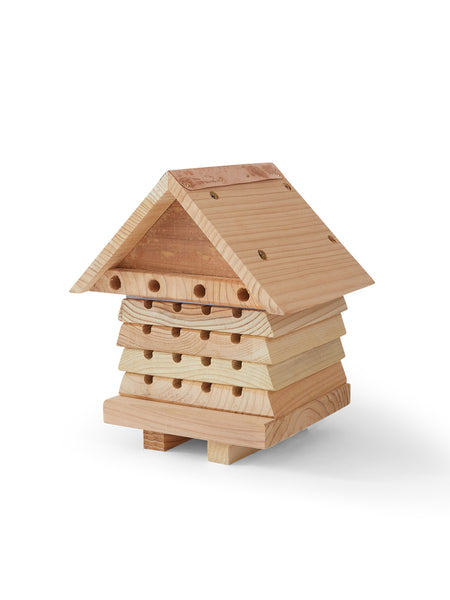Gardens shouldn’t be a chore, but all too often, they become one. We’d all like them to look marvellous every day, but that’s not achievable; those breathtaking pictures we admire on Instagram capture a moment in time, and every garden will have its up and downs. The good news is that imperfect gardens have never been more acceptable; they’re more welcoming for wildlife and better for your well-being too. So, instead of adding to your anxiety, here are ten things you don’t need to do in your perfectly imperfect garden.
- Mowing - as a nation, we’ve embraced ‘No Mow May’, and you can extend the principle of limiting your lawnmowing to other months of the year. The best balance for wildlife is having a mix of long and short grass, so set aside areas of ‘mow’ and ‘no mow’ to maximise your garden’s nature appeal. The ‘no mow’ areas only need one trim in late July or early August to encourage a diverse mix of flowers and grasses to develop. Alternatively, you can replace fiddly lawn areas with a low-maintenance, permeable surface such as bound gravel.
- Feeding - if you’re not fussed about producing prize-winning blooms or bumper harvests of vegetables, most plants will grow perfectly well without regular feeding - in fact, it could make them more robust in the long term. Observe how healthy wild plants are; no one is pumping them full of fertiliser! There are exceptions, for example, containers, where nutrients are in short supply and need topping up. If feeding sounds like a chore, avoid potted plants or choose varieties that tolerate ‘poor’ soil - there are plenty of them.
- Pandering to fussy plants - we make a rod for our own back by choosing plants that aren’t suited to the conditions in our gardens. Fussing over plants that would rather grow elsewhere can be gruelling, and I can guarantee there’s an alternative that’s just as lovely, requiring minimal care. If you choose the right plant for the right place, you’ll save yourself time and money.
- Tidying up - gardens were kept clinically tidy when I was a lad, but we’ve relaxed a lot since then. We now appreciate that long grass, fallen trees, flower-spangled lawns and undisturbed areas are beneficial for wildlife and attractive in their own right. Where certain pests and diseases are concerned, removing dead material is still advisable, and you should always ensure that dangerous obstacles are cleared away. Apart from that, enjoy the glorious disarray!
- Deadheading - we remove spent flowers to encourage plants to produce more flowers and fewer seeds. However, many plants have attractive fruits and seedheads that feed birds and shelter insects. Self-sown plants are a cheap, easy way to fill a garden and can be shared with friends. If you want to save time, be selective about how and when you remove dead flowers or reduce how often you do it. Those half-hours quickly add up!
- Digging - much of what we do in the garden is informed by ancient traditions we adhere to ‘just because’. I love to dig, but I disrupt a complex underground ecosystem each time I put my spade in the ground. Dig when you must, but not for the sake of it, and take time to explore the popular practice of ‘no dig’ gardening.
- Watering - during the summer, I spend more time watering than doing anything else except sleeping. Many gardeners have created outstanding gardens that require little or no irrigation. With summers getting hotter and drier, there can be no better time to follow their lead by choosing drought-tolerant plants and mulching deeply to trap moisture in the soil.
- Planting annuals - I began my gardening career growing annual flowers from seed. Annuals are rewarding, bright and colourful, but they die when winter arrives. Perennials, shrubs and trees return yearly and require much less attention. If you can't resist annuals, choose types that will seed themselves, for example, nasturtiums, love-in-a-mist, forget-me-not and poppy, saving you time and effort the following season.
- Battling pests - war is futile, and the same can be said of ridding your garden of pests. Almost any intervention in your garden alters the natural dynamic, so eradicating one foe can open the door to another. If box blight has you blaspheming or lily beetles send you lurching for the bug spray, give yourself a break and grow something that won’t provide pests with a free lunch. Seek out disease resistant varieties of your favourite fruits and vegetables.
- Be on task - in our heads, we create long lists of jobs that need to be done in our garden, and when they’re done, we add more. Being task focused all the time prevents us from seeing, feeling, smelling and thinking. Ditch the list occasionally and simply enjoy what you’ve achieved.

Do some of these ideas sound liberating? If so, I’m glad. Is there a tip I’ve missed? Let me know by emailing hello@dancoopergarden.com.
Footnote - If this all sounds too good to be true, a few imperfections shouldn’t be tolerated, and they relate to health, safety, time and money. First and foremost, don’t neglect to do anything that would make your garden dangerous. Toxic plants, sharp sticks, broken glass, poorly stored chemicals, abandoned garden tools, rotten branches and rickety garden sheds are genuine risks. Deal with them carefully and promptly. Some tasks create a lot of extra work and anxiety if postponed for too long, for example, getting rid of perennial weeds or failing to keep a boundary hedge in check. Prioritise these and miss a mow or skip a deadheading session instead.





